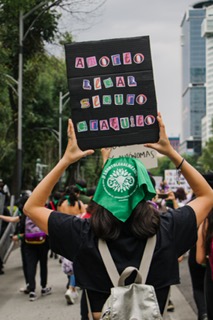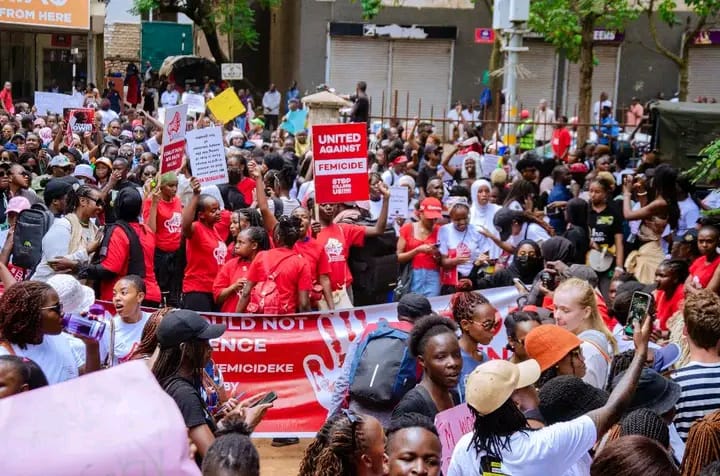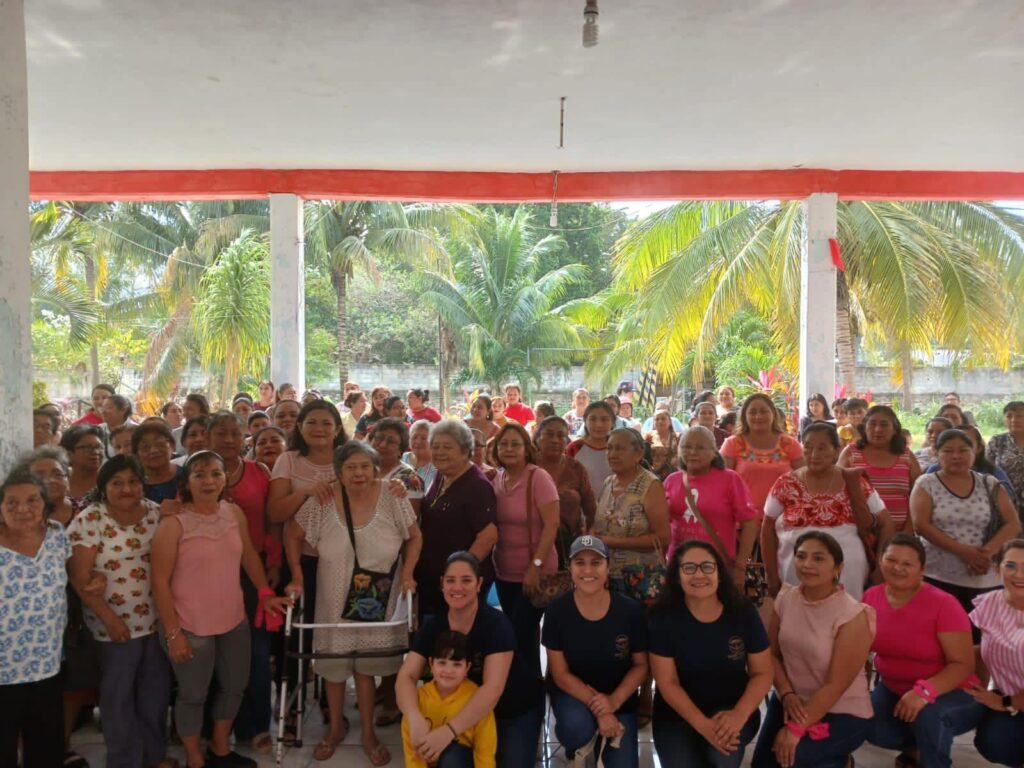Expanding Access to Abortion in Mexico: Lessons Learned from Centro Mujeres

How did they do it in Mexico?
Ten days before the US Supreme Court struck down Roe v. Wade, the Mexican state of Baja California Sur implemented DECRETO 2832, a state law decriminalizing abortion. Centro Mujeres, a partner/grantee of WomenStrong International, led the grassroots initiative to pass this progressive law.
We in the Northern Hemisphere have much to gain by seeking answers from activists in the Global South if we would only listen. From activists in developing and emerging countries, we could learn how important it is to keep human rights at the forefront; be reminded that we belong to a global movement for reproductive rights and justice; and understand that it’s wise to elevate the voices of those who work with women and teens in their own communities.
Looking back on their initiative’s success, Centro Mujeres’ co-directors, Teresa Shields and Dr. Mónica Jasis, shared hope from Mexico and key takeaways from their struggle with author and WomenStrong alumnus Greg Loughlin.
The following lessons enabled Centro Mujeres to build long-term momentum to pass DECRETO 2832:
- They didn’t do it alone.
- Collaborate at different levels, with communities and with policymakers.
- Who can carry your banner? Educate leaders and potential allies.
- Tailor your approach to suit the many faces of government.
- Get out of the patriarchal box and share leadership.
- Help someone and gain a powerful ally.
- Never, ever, give up.
Leaders like Mónica Jasis and Teresa Shields also remind us of something that is easy to forget in the US today: Progressive change is possible. Now is the time to connect and move forward.
We had intel, but the decision was a blow.
I knew something bad had happened when my Twitter feed was flooded by a thread of single words and acronyms – “Disastrous!” “OMG!” and worse – on June 24, 2022. It took me only a few seconds to figure out what had happened: After 49 years, the U.S. Supreme Court had overturned Roe v. Wade.

The right to an abortion based on a right to privacy was gone. The Court made way for the criminalization of women and abortion providers.
Amid the confusion, outrage, and sense of hopelessness, I kept thinking about Teresa Shield’s quiet sharing during a WomenStrong International Learning Lab discussion, a few months prior.
Teresa, a co-director of Centro Mujeres in La Paz, Mexico, described how her organization was working in their home state of Baja California Sur to advocate for legislation that would legalize and expand access to abortion, after Mexico’s Supreme Court declared that no states have a legal basis for criminalizing abortions. The conversation moved elsewhere, but now — grasping for hope — I thought back on her example.
I wondered, how is it that Mexico, a traditionally patriarchal, predominantly Roman Catholic country, was expanding access to abortion while the US, a self-proclaimed beacon of freedom for the world, was sliding backwards? How had Mexico done it? What lessons might they share with us?
I asked WomenStrong International and Centro Mujeres’ codirectors, Teresa Shields and Dr. Mónica Jasis, if I might interview them to find out. They said yes.
I learned a lot from women who’d led abortion-rights campaigns in Mexico.
Dr. Mónica Jasis is a physician, researcher, and public health expert, and Teresa Shields is a highly experienced nonprofit administrator. Together, they founded Centro Mujeres in La Paz, Mexico, in 1994.
Their organization delivers community programs, education, and policy advocacy to promote the reproductive and sexual health and rights of women, youth, and seasonal migrants in Baja California Sur, a state on the southern part of the long peninsula off the west coast of Mexico.
“We knew that our fight would be not for now, but for the future,” Mónica declared. “There was nothing here.”
In 1994, an abortion was only legal in Baja California Sur after rape, but that required “proving” that rape had happened and receiving a judge’s permission – impossible steps for many women within a highly patriarchal system.
Teresa remembered, “Human rights were not in the narrative of the government or other institutions.”
How did they get from there to here – passing DECRETO 2832 to decriminalize abortion? – and what lessons did they learn along the way?
About the Author
Greg Loughlin is a writer and advocate who lives in Atlanta, Georgia, USA. He has worked for over two decades to end male violence against women, including reproductive coercion. Previous positions include Executive Director of the Georgia Commission on Family Violence and Director of Strategic Initiatives at Men Stopping Violence, during which time he became a valued partner of WomenStrong International.




